#heroes of ukraine
Text
honestly it's scary as a whole that people can be that stupid, but watching tankies try to explain to Ukrainians that the Azov symbol is a swastika is so incredibly funny to me. like, yes babe. sure. of course. we also worship the Devil and kill Russian babies in his name. and we have secret laboratories in our backyards where we grow our genetically-modified-Devil-pigeons. thank you for spreading russian propaganda in english, I know you people love to be inclusive and everything.
#war in ukraine#ukriane#russian invasion of ukraine#fuck russia#slava ukraini#heroyam slava#azov#azov are heroes#save azov#heroes of ukraine
6 notes
·
View notes
Text
Three Volosyansky brothers from Uzhhorod joined the territorial defense together
When Russia invaded Ukraine on February 24, lawyer Olexander, businessman and coach of the children’s football team Vladyslav, and sales consultant Bohdan went to the military commissariat. However, they were surprised to see each other there. They did not even agree in advance or share their decisions. Now all three are defending Ukraine as part of the territorial defense.
According to the brothers, they are not professional soldiers. But everyone wants to do the most important thing for the country — protect Ukraine from the enemy.
Good luck to you, heroes!

17 notes
·
View notes
Text
I thought after 10+ years of war and especially 2+ years of all out genocidal massacre accompanied by fascist frenzie inside russia itself, and then especially after Navalny's death, his team, now led by his wife, would have the common human decency to at least stop whining about how mean Ukrainians are being to them on the internet, and how it's only personally Putin alone who is waging the war and massacring people, and how bad Ukrainians are for hurting their precious great russian feelings... but no. I guess that only dying from a missile strike on their home, having lost friends and relatives at the frontline/under occupation/to similar missile strikes, can a Ukrainian understand all the depth of the pain of a russian's hurt fee-fees for not being worshipped as a saint because that russian personally at some point thought to themself or EVEN whispered under their breath, "no to war". Or "** ** ***", as they say.
Burn in hell. The few russians who do actually do something, unlike you, deserve a better representation. And those other few who are afraid to do something but also oppose the war, at least have the humanity to not whine about Ukrainians not liking to be genocided.
The rest of you belong in the same hell pit as Putin.
#the way navalnaya is praised as some sort of hero while all she's been trying to do is to stop other countries from helping ukraine#while doing ABSOLUTELY NOTHING WHATSOEVER to stop putin#who she's solely blaming for the war#the sheer audacity is incredible
99 notes
·
View notes
Text
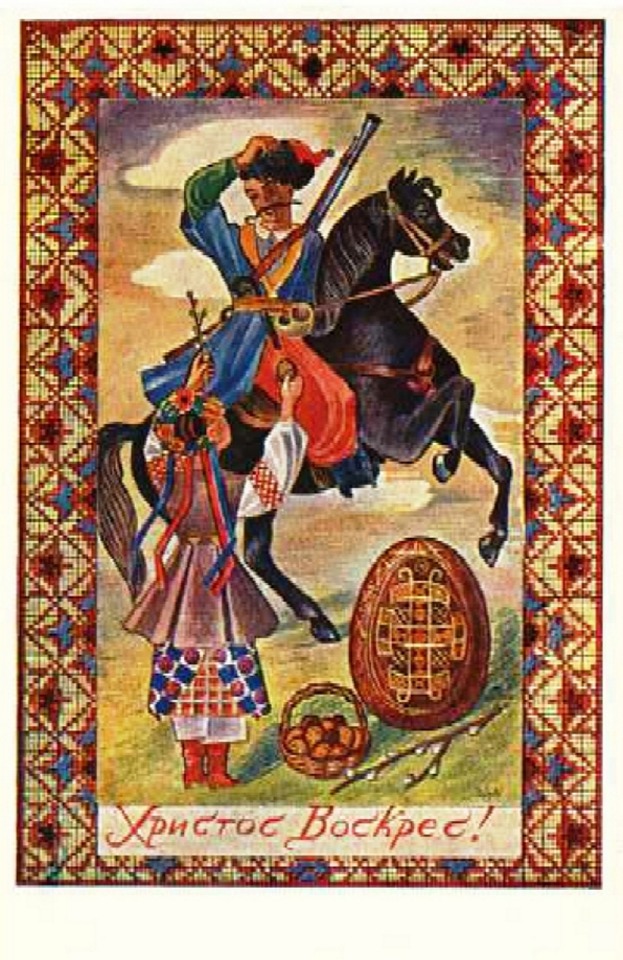
Sviatoslav Hordynsky (Святослав Гординський, 1906-1993)
Christ has arisen! (Христос Воскрес!)
Vintage Ukrainian Easter postcard published in Lviv, c. 1930.
Easter greetings from Bohun's World!
#ukraine#ukrainian art#vintage postcards#ukrainian vintage postcards#easter#art#cossack art#cossack heroes#cossacks#ukrainian culture#ukrainian heritage#I'm posting it today although Eastern Orthodox Easter will be this year on 5th May#but I'm accustomed to celebrate Easter and Christmas twice a year
78 notes
·
View notes
Text

Ukrainian Hero
Kane Te Kai, the volunteer soldier from New Zealand who went viral a few weeks ago when a video was released of him saving a Ukrainian friend held captive by the Russians, was buried in Auckland today.
Kane was killed in battle against the Russian Army on March 20th.
Rest in peace Kane. Ukraine will never forget you’re sacrifice!
#ukraine#russia#russian war on ukraine#ukrainian hero#Kane Te Kai#kia#killed in action#killed in battle#killed in war#war#world at war#weapons#battle#fighting#combat#rest in peace#rest in paradise#new zealand
377 notes
·
View notes
Text
"Russian athletes are innocent and shouldn't be punished and barred from the Olympics! They may not support the war!"
*Russian athletes after the Olympics last year*


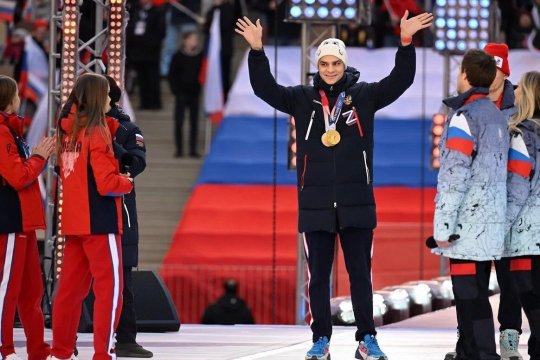
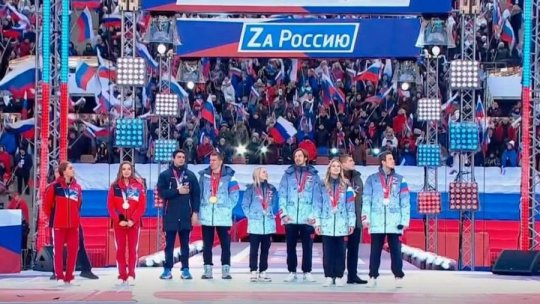
#the olympics are russias national pride and deeply political for russia#doesnt matter if you take their flags away at the Olympics#the will still return to keep promoting the war as local heroes#and if some of them dont have a choice in being used this way then all the more reason not to let Russia use them#russian invasion of ukraine#russian imperialism#russia is a terrorist state#2024 olympics
459 notes
·
View notes
Text
🥳 Welcome Home 🥳
🥹The commanding officers who defended Mariupol in Ukraine now

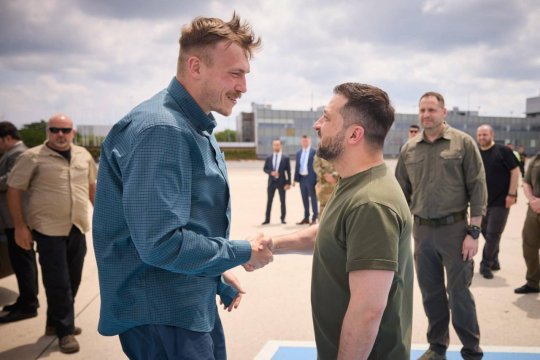
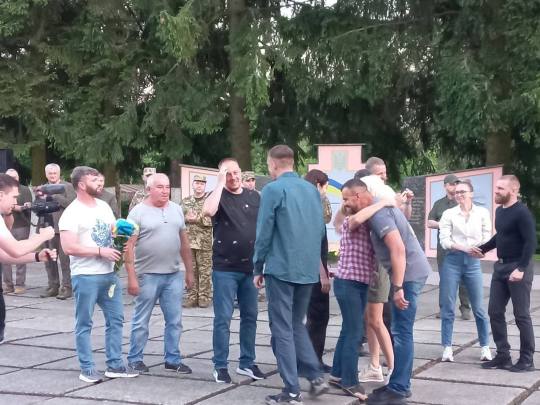
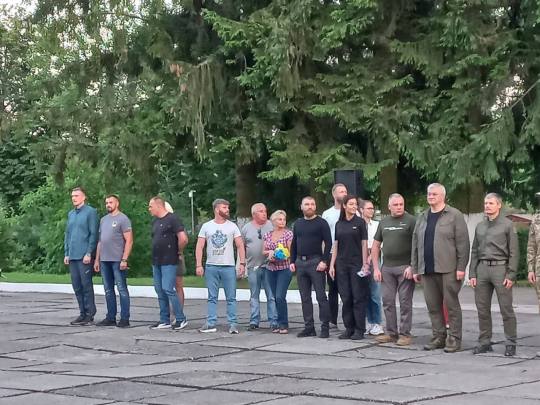
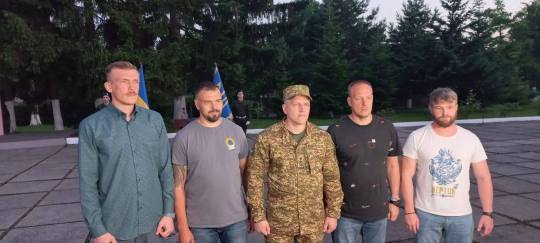



Glory to the Heroes of Ukraine
#ukraine#war in ukraine#azov#azovstal defenders#glory to ukraine#Glory to the Heroes of Ukraine#500 days#welcome home#ukraine heroes#mariupol#mariupol defenders#ukrainian armed forces#ukrainian armed forces azov#stand with ukraine#support ukraine#love ukraine#pray for ukraine#pray for ukrainian soldiers#pray for ukrainians#ukrainians#ukrainians on tumbl#war 2023#heroes of ukraine#fight for motherland#fight for freedom#Слава Україні#Україна#Українці#Слава Героям України#Азов
150 notes
·
View notes
Text
Alexei navalny did not like tragedies. He preferred Hollywood films and fables in which heroes vanquish villains and good triumphs over evil. He had the looks and talent to be one of those heroes, but he was born in Russia and lived in dark times, spending his last days in a penal colony in the Arctic permafrost. A fan of “Star Wars”, he described his ordeal in lyrical terms. “Prison [exists] in one’s mind,” he wrote from his cell in 2021. “And if you think carefully, I am not in prison but on a space voyage…to a wonderful new world.” That voyage ended on February 16th.
Mr Navalny’s death was blamed by Russian prison authorities on a blood clot—though his doctor said he suffered from no condition which made that likely. Whatever ends up on his death certificate, he was killed by Vladimir Putin. Russia’s president locked him up; in his name Mr Navalny was subjected to a regime of forced labour and solitary confinement. Mr Navalny will be celebrated as a man of remarkable courage. His life will be remembered for what it says about Mr Putin, what it portends for Russia and what it demands of the world.
A man of formidable intelligence, Mr Navalny identified the two foundations on which Mr Putin has built his power: fear and greed. In Mr Putin’s world everyone can be bribed or threatened. Not only did Mr Navalny understand those impulses, he struck at them in devastating ways.
His insight was that corruption was not just a side hustle but the moral rot at the heart of Mr Putin’s state. His anti-corruption crusade formed a new genre of immaculately documented and thriller-like films that displayed the yachts, villas and planes of Russia’s rulers. These videos, posted on YouTube, culminated in an exposé of Mr Putin’s billion-dollar palace on the Black Sea coast that has been watched 130m times. Despite the palace’s iron gates, adorned with a two-headed imperial eagle, Mr Navalny portrayed its owner not as a tsar so much as a tasteless mafia boss.
Mr Navalny also understood fear and how to defeat it. Mr Putin’s first attempt to kill him was in 2020, when he was poisoned with the nerve agent Novichok smeared inside his underwear. By sheer good luck Mr Navalny survived, regained his strength in Germany and less than a year later flew back to Moscow to defy Mr Putin in a blast of publicity.
He returned in the full knowledge that he would probably be arrested. On the way back to confront the evil ruler who had tried to poison him he did not read Hamlet. He watched Rick and Morty, an American cartoon. By mocking Mr Putin, he diminished him. “I’ve mortally offended him by surviving,” he said from the dock during his trial in 2021. “He will enter history as a poisoner. We had Yaroslav the Wise and Alexander the Liberator. And now we will have Vladimir the Poisoner of Underpants.”
Mr Navalny was sentenced to 19 years in jail on extremism charges. He turned his sentence into an act of cheerful defiance. Every time he appeared in court hearings via video link from prison, his smile cut through the walls of his cell and beamed across Russia’s 11 time zones. On February 15th, on the eve of his death, he was in court again. Dressed in dark-grey prison uniform he laughed in the face of Mr Putin’s judges, suggesting they should put some money into his account as he was running short. In the end there was only one way Mr Putin could wipe the smile off his face.
In his essay “Live Not by Lies”, in 1974, Alexander Solzhenitsyn, a Nobel-prize-winning Soviet novelist, wrote that “when violence intrudes into peaceful life, its face glows with self-confidence, as if it were carrying a banner and shouting: ‘I am violence. Run away, make way for me—I will crush you’.” Mr Navalny understood, but instead of running he held his ground.
His great strength was to understand Mr Putin’s fear of other people’s courage. In one of his early communications from jail he wrote that: “it is not honest people who frighten the authorities…but those who are not afraid, or, to be more precise: those who may be afraid, but overcome their fear.”
That is why his death portends a deepening of repression inside Russia. Mr Navalny’s murder was not the first and it will not be the last. The next targets could be Ilya Yashin, a brave politician who followed Mr Navalny to prison, or Vladimir Kara-Murza, a historian, journalist and politician who has been sentenced to 25 years on treason charges for speaking against the war. The lawyers and activists who continue to defend these dissidents are also in danger. Since Mr Putin’s return to the presidency in 2012, the number of prisoners has increased 15 times. Even as the remnants of Stalin’s gulag fill with political prisoners, professional criminals are being recruited and released to fight in Ukraine.
Mr Navalny’s death also casts a shadow over ordinary Russians. In Moscow and across Russia, people flooded the streets at the news. Before the police started to arrest them, they covered memorials for previous victims of political repression in flowers. Yet that repression is intensifying. Since the start of the war in Ukraine, 1,305 men and women have been prosecuted for speaking out against it. A wave of repression is also swallowing up people who never before engaged in politics. The president will shoot into the crowds if he must.
For the West, Mr Navalny’s death contains a call to action. Mr Putin considers its leaders too weak and too decadent to resist him. And for many years Western politicians and businessmen did much to prove that fear and greed work in the West, too. When Mr Putin first bombed and shelled Chechnya in the early 2000s, Western politicians turned a blind eye and continued to do business with his cronies. When he murdered his opponents in Moscow and annexed Crimea in 2014, they slapped his wrist. Even after he had invaded Ukraine in 2022, they hesitated to provide enough weapons for Russia to be defeated. Every time the West stepped back, Mr Putin took a step forward. Every time Western politicians expressed their “grave concern”, he smirked.
The West needs to find the strength and courage that Mr Navalny showed. It should understand that Mr Navalny’s murder, the soaring number of political prisoners, the torture and beating of people across Russia, the assassination of Mr Putin’s opponents in Europe and the shelling of Ukrainian cities are all part of the same war. Without resolve, the West’s military and economic superiority will count for nothing.
Western governments should start by treating people like Mr Kara-Murza as prisoners of Mr Putin’s war who need to be exchanged with Russian prisoners in the West or prisoners of war in Ukraine. They should not stigmatise ordinary Russians living under a paranoid dictator and his goons, or put the onus on ordinary people to overthrow the dictator who is repressing them.
The best retort to Mr Putin is by arming Ukraine. Every time America’s Congress votes down aid, Russia takes comfort. The leaders assembled at the Munich Security Conference, who heard Mr Navalny’s wife, Yulia, speak of justice for her husband’s death, need to stiffen their resolve to see through the war. For their part Ukrainian politicians must see that standing up for Russian activists and prisoners is also a way of helping their own country—just as Mr Navalny called for peace, for rebuilding Ukraine and the prosecution of Russian war crimes. Liberating Ukraine would be the best way to liberate Russia, too.
The voyage ends
After he had been poisoned, Mr Navalny returned home because he believed that history was on his side and that Russia was freeing itself from the deadly grip of its own imperial past. “Putin is the last chord of the ussr,” he told The Economist a few months before he took that last fateful journey. “People in the Kremlin know there is a historic current that is moving against them.” Mr Putin invaded Ukraine to reverse that current. Now he has killed Mr Navalny.
Mr Navalny would not want Mr Putin’s message to prevail. “[If I get killed] the obvious thing is: don’t give up,” he once told American film-makers. “All it takes for evil to triumph is the inaction of good people. There’s no need for inaction.”
Mr Navalny’s death has seemed imminent for months. And yet there is something crushing about it. He was not alone in believing that good triumphs over evil, and that heroes vanquish villains. His courage was an inspiration. To see that moral order so brutally overturned is a terrible affront. ■
39 notes
·
View notes
Text

Slava Ukraini, heroyam slava! History of the slogan
#zelensky#volodimir zelenski#zelenski#russo ukrainian war#ukraine#glory to ukraine#glory to the heroes
219 notes
·
View notes
Text
My next post in support of Ukraine is:
Next site, Kharkiv College of Transport Technologies, mainly because muscovy destroyed it with a drone attack earlier this week. The building it was located in was built in 1915 and which had survived WWI & WWII. The building was so badly damaged due to the drone attack that it has to be torn down as it isn't safe. The college also has 2 other buildings. Before the destruction of this building, the college had "55 laboratories & offices, 6 educational workshops, 2 sports halls, an assembly hall, a library with a reading room, which has more than 46 thousand copies of educational, scientific, methodical, and fiction literature." A few of the different courses you can take are:
Contact network electrician
Traction substation electrician
Train assembler
Signalman
As we've seen during this unprovoked war against Ukraine, the train system is very important to Ukraine.
#StandWithUkraine
#SlavaUkraïni 🇺🇦🌻

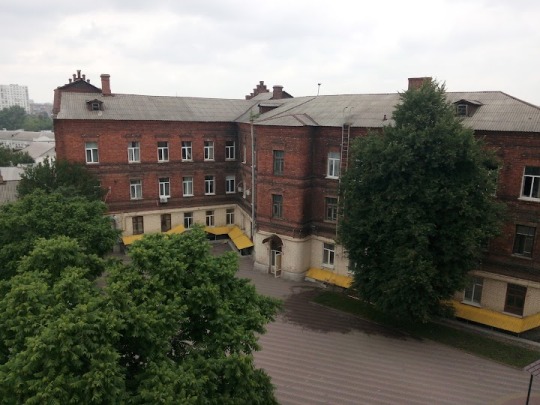



39 notes
·
View notes
Text

I can fix him...
#seraphim#gods & heroes#blood of zeus#artists on tumblr#fanart#darkne1t#digital art#greek mythology#netflix#i can fix him#artist on tumblr#artist from ukraine#ukrainian artist#artwork#украрт#украртпідтримка#діджитал#скетчі#digital sketch#sketch
28 notes
·
View notes
Text
Fuck. We are in desperate need of genocide studies in the US. Because people are genuinely arguing that Nazism— and thus the white supremacy which inspired it— is an aberration of European philosophical tradition, rather than the end conclusion of “Western” ideologies.
“Nazism is uniquely evil” implies it cannot happen here and that it originally happened by freak happenstance. If you singularize the actions of the Nazis, you lose critical analysis of what ideas inspired them (see: US genocide of First Nations People) and how the Germans developed their tactics of oppression and murder (see: German genocide of the Herero and the Nama people between 1904-1908).
I believe it’s time we call this kind of rhetoric what it is: genocide denialism and Holocaust revisionism. It denies the European-created genocides before and after the Holocaust, and it rewrites the history leading up to the Holocaust to purposefully cover up the fact that it can and will happen here. Over and over and over. Such rhetoric also (purposefully) denies victims of genocides the world over solidarity with each other. To justify the destruction of Poland, Hitler asked, “Who, after all, speaks today of the annihilation of the Armenians?” Would you deny the son of a Shoah survivor the right to march with Armenians? Or would you, like the German state, accuse him of de-singularizing and relativizing the Holocaust and report him to the local antisemitism commissioner?
If you treat Nazism as unlike anything else that’s ever happened or will happen, then you don’t need to worry about it and the tragedies it created happening ever again. “Never again” becomes an empty promise. This type of rhetoric gives people the opportunity to wipe their hands of any culpability in the rise and reproduction of similar systems or other genocides, and they can use this singularity rhetoric to position themselves into a moral category despite supporting similar ideas. That Nazism and the Shoah happened means it was possible and still is possible, among any people.
The “massive, systematic, and efficient nature of” Nazi oppression, brutality, atrocity and its genocidal tactics and policies is a function of modernity and “Western” Enlightenment rationality. It is not an aberration.
#‘It’s not Nazism so it’s not immoral’#…doesn’t just lead to an uncritical analysis of genocidal rhetoric. policies. and tactics…#…it also leads to a watering down of Nazism and white supremacy…#…where people are drawn to glibly compare anything they consider immoral to Nazism.#see: ‘Godwin’s law’#If Nazism is to be considered an aberration…#…then we (purposefully) discourage people from seeing the victims of that evil in the suffering of others…#…so only ‘those victims’ have ever suffered and no one else has or can suffer.#Nations— like Germany— are using this logic to rewrite their history to deny their colonial genocides.#While nations like Poland and Ukraine are using this to paint themselves as heroes and saviors of the ‘ultimate victims’…#…thus ignoring the part their people and Governments played in the Genocide of the Jews.#genocide#antisemitism
34 notes
·
View notes
Text

Bohdan Zenobi Chmielnicki (Bohdan Zynoviy Khmelnytsky, Богдан Зиновій Хмельницький) lesser-known (part 1)
Perhaps the oldest preserved portrait of the famous Ukrainian Cossack Hetman by an unknown artist from the 17th century (oil on canvas, 101 cm X 77 cm).
From the collection of the National Art Museum of Ukraine in Kyiv (Національний художній музей України), Ж-173.
@wanderer-on-the-steppe, specially for you!
#bohdan khmelnytsky#bohdan chmielnicki#богдан хмельницький#ukrainian art#ukrainian history#ukrainian heritage#cossacks#cossack art#cossack baroque#cossack heroes#hetmanship#kyiv#ukraine#art#17th century art#17th century#17th century painting
66 notes
·
View notes
Text
youtube
"For any English speaking viewers: this song "A barrel on fire" is a remake of an old Ukrainian folk song "A pine tree on fire", which was about a girl preparing to get married and to start a less frivolous life. Don't ask me why the flaming pine tree – it's symbolic somehow, but I don't get it myself. This modern version is basically also a folk song, as it was written collectively by protesters during the Maidan Revolution. The lyrics of "A barrel on fire" are about people gathering around fires in barrels on Maidan Nezalezhnosti (Independence Square in Kyiv) in cold winter months during the protests, sharing food, tea and coffee, giving each other warmth and support."
#Glory to Ukraine#Glory to Hero#stand with Ukraine#ukrainian history#euromaidan#ukrainian music#video#musik#Youtube
18 notes
·
View notes
Text
They are our warriors💙Our pride💛
Every day they risk their lives for our freedom...
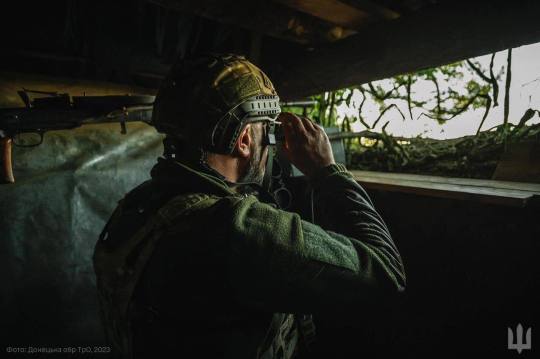

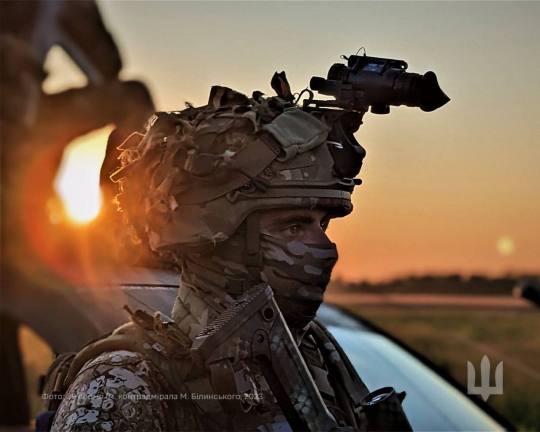
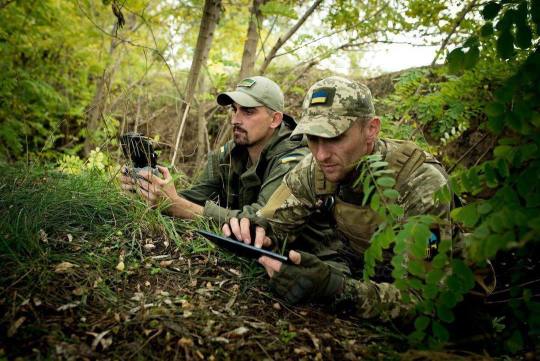

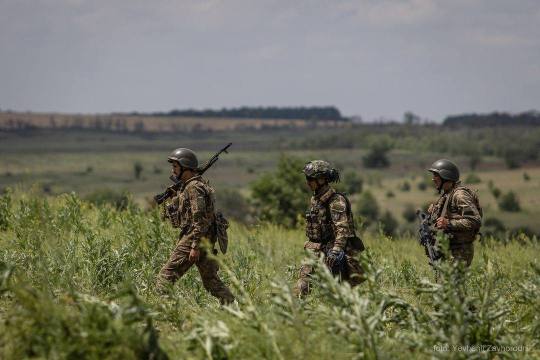


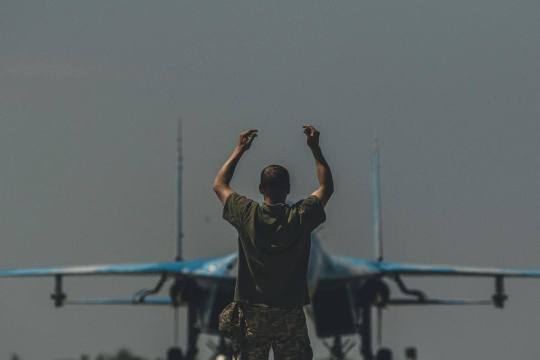
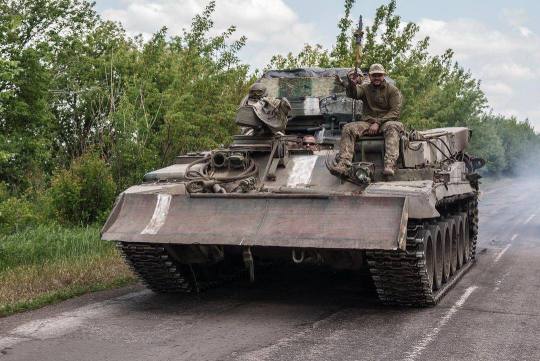
Велика Подяка нашим Захисникам та Захисницям
Слава Героям України🇺🇦
Glory to the Heroes of Ukraine
#army#ukrainian armed forces#ukrainian heroes#ukraine#war in ukraine#ukrainians#fight for motherland#fight for freedom#pray for ukraine#pray for ukrainian soldiers#soldiers#war 2023#battlefield#war#pray for ukrainians#stand with ukraine#russian invasion#we will win#we will resist#ukraine under attack#russia war criminal#stop russia#glory to ukraine#glory to the heroes#укртумба#Україна#українці#Україна Єдина#ЗСУ#Слава Збройним Силам України
105 notes
·
View notes
Text
Russia:
"Be absorbed by us, or we will kill you."
"You are our brothers, so we have to kill you to remind you of that."
This is the reason for their war. No sane person can support that. We have to defend Ukraine and the rational world from such violations of international law and expansion which is a close relative of Nazi Germany. As insupportable a reason, and as horrific of methods.
#Great Patriotic War#And some blathering about the West#Which is only whining about the west not wanting them to take over any countries they want#Plus a sort of insular reaction against the west and trying to go more homegrown and#With a particular russianness thrown in#russians trying to be nazis#While claiming to be heroes inheriting the heroism of the russian pride we are the greatest#Which only ends up in something hollow#Thin trappings hardly disguising blatant evil#russia#Ukraine#Truth
80 notes
·
View notes